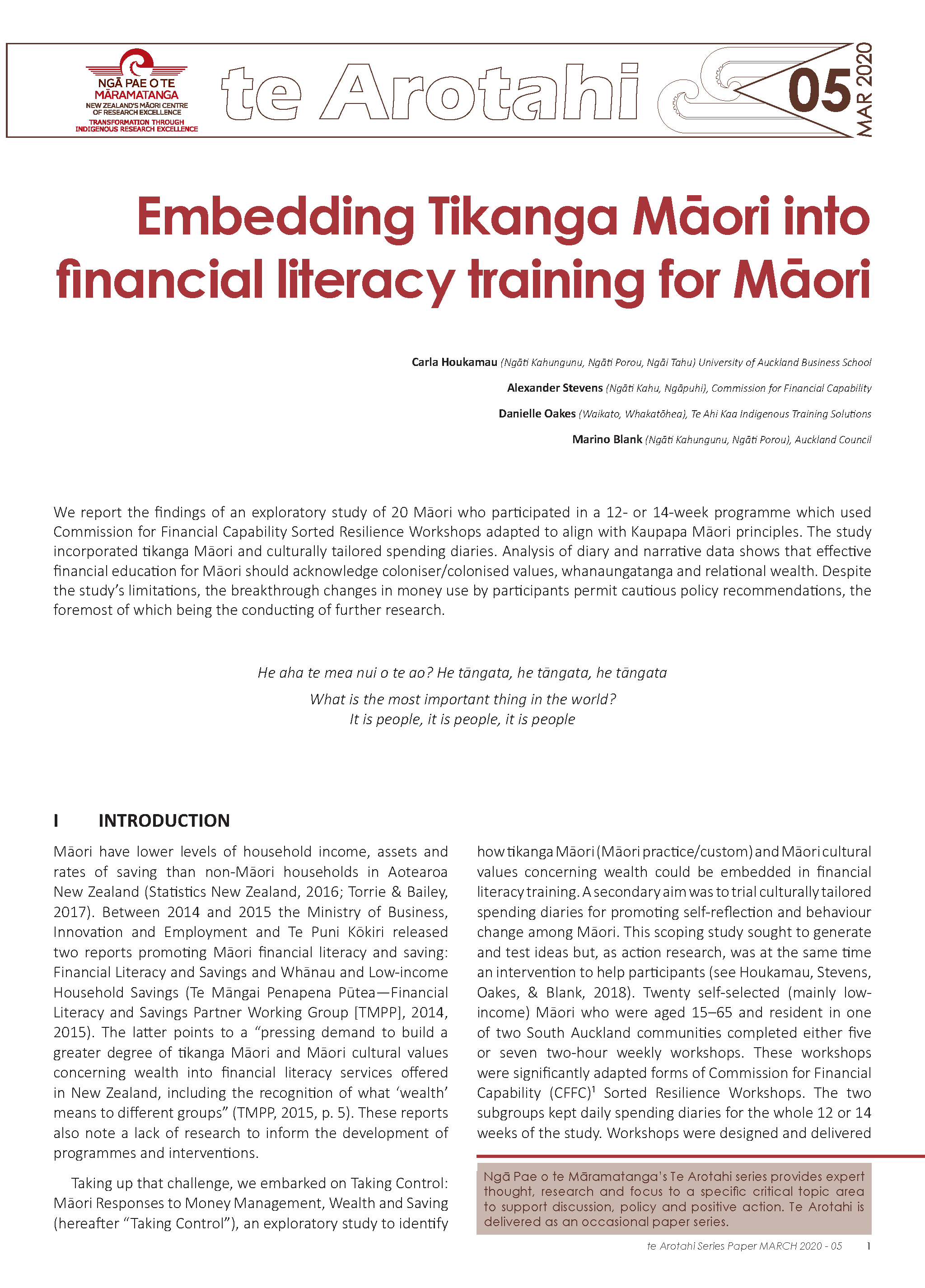
Māori have repeatedly stressed that wealth and well-being is not just about bank balances. Instead for tangata whenua it is defined in terms of the quality of whānau relationships, whanau cohesion, and our children’s capacity to thrive. NPM’s fifth Te Arotahi paper asserts that tikanga Māori values must form a core component of teaching financial management skills to our whānau and communities. As we seek as a nation to ensure prosperity and well-being for all, the unique concepts of wealth that are defined by tikanga need to be valued equally with the practical skills of how to budget, manage debt, and calculate interest.
A skilled and experienced cross institutional research team, led by Associate Professor Carla Houkamau (University of Auckland Business School), brought together a group of mostly low income Māori families to workshop the basics of money management within a kaupapa Māori environment and by doing so delivered significant results, including establishing new savings habits and the clearing of entrenched debts.
From these engagements and workshops, the team has confirmed that "financial education programmes to help address Māori socio-economic disadvantage and financial literacy and capability may encounter disengagement unless the programmes reflect Māori cultural values, specifically relational concepts of wealth and wellbeing."